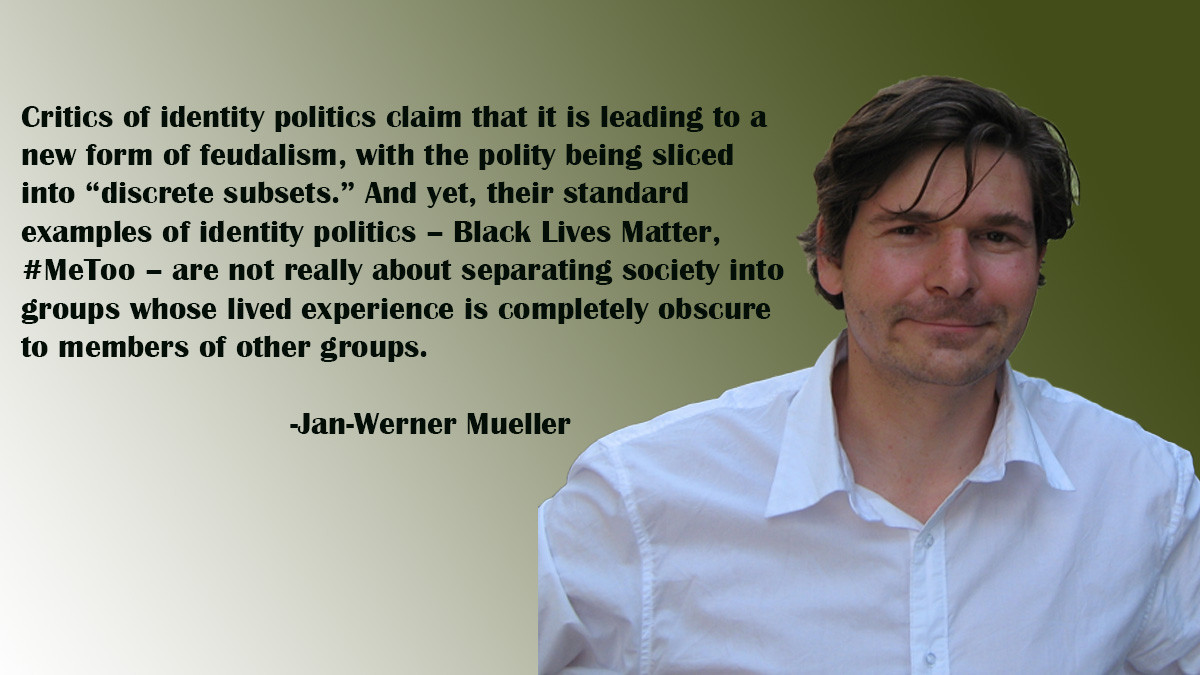
PRINCETON – A few victories by center-left parties in large countries hardly makes for an international trend. Nonetheless, wins by the US Democrats in 2020 and the German Social Democrats (SPD) in 2021 – not to mention a strong socialist performance in Portugal’s recent election – suggest that the much-discussed crisis of social democracy has not been fatal.
According to some center-left strategists, political renewal requires a turn away from anything that smacks of identity politics. The fact that German Chancellor Olaf Scholz’s successful campaign theme was “respect” supposedly proves this. The implication appears to be that the “working class” deserves priority over the recognition of ever-more assertive self-identified minorities. And from this premise follows another argument that pundits have been making for years: the center left must win back votes from the far right, not only by refocusing on bread-and-butter issues, but also by making concessions to nationalist and anti-immigration sentiment (though this part usually isn’t said out loud).
But this premise is wrong, both empirically and morally, and parties that pursue such a strategy not only will fail to secure future majorities; they also will betray the core commitments that define the center left, and that younger voters take especially seriously. To be sure, Scholz’s triumph last year seemed to vindicate former SPD leader Sigmar Gabriel, who warned in 2016 that “if you lose the workers of the Rust Belt, hipsters in California won’t save you.” Scholz also took advice from Harvard political philosopher Michael Sandel, who has been urging the center left to abandon its fixation on meritocracy.
The idea is that political leaders should stop telling the proverbial “losers of globalization” that their failures are their own fault (or patronizingly suggesting that displaced blue-collar workers just need to move on and “learn to code”). The mega-credentialed should acknowledge that their success is often the result of existing privileges and sheer luck, and that the less educated are owed more respect than they have received.
This approach aligns neatly with the insights of another famous academic: French economist Thomas Piketty, who argues that political competition in Western party systems now primarily plays out between two different elites: the “Brahmin Left” (highly educated “knowledge workers”) and the “Merchant Right” (business leaders and wealthy donors who support conservative parties and causes). In this account, the working class is nowhere to be found.
Plenty of observers are confident that workers who feel ignored will inevitably become a far-right constituency – sometimes dubbed “working class parties 2.0.” The lesson for the center left, then, is that it should become both post-neoliberal and post-meritocratic, sometimes offering tactical concessions to workers with authoritarian and anti-immigrant attitudes.
Yet as the social scientists Tarik Abou-Chadi, Reto Mitteregger, and Cas Mudde show, the assumptions underpinning this seductively simple formula are mistaken. After all, there have always been authoritarian-leaning workers, and they have rarely if ever voted for center-left parties – not even during social democracy’s post-World War II heyday. The working class has never been homogenous, and it has become even more diverse over time. The archetypal white male steel worker is no longer remotely representative of this broader cohort. The majority of service workers are female, and a significant share of them are women of color.
But even more striking, Abou-Chadi, Mitteregger, and Mudde point out that the majority of working-class voters in Western Europe – both in traditional production settings and in services – are not hostile to immigration. While the far right has been doing better among workers in recent years – reaching beyond its traditional constituency of small-business owners and the self-employed – it still commands only around 15% of the total worker vote in Western European elections. According to Abou-Chadi, Mitteregger, and Mudde, the far right has done much better with the low-educated voters who previously supported mainstream conservative parties or did not vote at all.
True, center-left parties have been losing ground in many democracies in recent decades. But the main beneficiaries have been center-right and green parties, and it is the highly educated who are more likely to defect from traditional working-class parties. With populations across the West becoming more educated and – gradually – more open-minded, appealing to an apocryphal white man who resents woke neoliberals is not a winning strategy.
Moreover, it is a mistake to view politics as being either about recognition of people’s dignity or material redistribution. This is a false choice, and it is fanciful to think that politics in the past was purely about finding rational compromises among groups with competing economic interests. Old-school socialists did not just lobby for higher pay; they also struggled for the affirmation of working people’s dignity.
Critics of identity politics claim that it is leading to a new form of feudalism, with the polity being sliced into “discrete subsets.” And yet, their standard examples of identity politics – Black Lives Matter, #MeToo – are not really about separating society into groups whose lived experience is completely obscure to members of other groups. After all, there is a strong emphasis on distribution: rights that many citizens take for granted – such as not being shot by police or raped by powerful people – need to be secured for everyone. Young people are more sensitive to these challenges, and it is among younger cohorts, not older workers, that social democrats have been doing poorly in recent years.
According to Scholz’s advisers, he succeeded by insisting that no one should be considered “deplorable” – the now-infamous term that Hillary Clinton used to describe Donald Trump’s supporters in 2016. True, equal respect is a basic element of democracy. But that doesn’t mean far-right figures – the self-appointed representatives of the “deplorables” – are correct in suggesting that highly educated professionals spend most of their time sneering at the left-behind. Reaching out to everyone is one thing; framing politics as a culture war between less-educated folks and supposedly disdainful elites is another thing entirely.
German Social Democrats did not “win back” voters from the far right, because their voters had never moved en masse in that direction. By making concessions to the far right, center-left parties will only alienate the current and future demographic cohorts they need to win.
Jan-Werner Mueller, Professor of Politics at Princeton University, is a fellow at The New Institute, Hamburg and the author, most recently, of Democracy Rules (Farrar, Straus and Giroux, 2021; Allen Lane, 2021).
Copyright: Project Syndicate, 2022.
www.project-syndicate.org

 Jan Werner Mueller
Jan Werner Mueller








